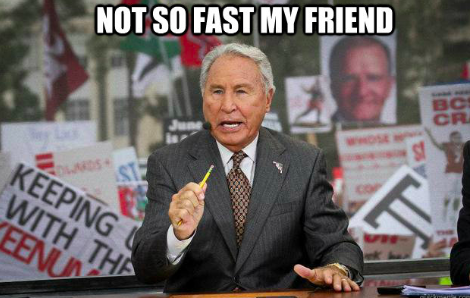From the Playing Surface to the Sidelines
Over the course of my athlete transition practice, I have come across a number of athletes who are considering re-entering their sport in a coaching role. On the surface, this appears to be a great idea: to parlay a lifetime of experience and skills into a new career developing those skills in others. However, connecting those dots may not be a simple, easy, or natural as it appears. In the process of trying to develop good athletes, the development of good coaches may often get overlooked.
Good Player = Good Coach? Not So Fast
Elite sports, both at the professional and developmental levels, are filled with coaches that have first hand experience at the highest levels of their sport. Around 80% of MLB managers are former players and 60% of NHL coaches spent time as players in the league they now coach in. The numbers are less so for the NBA and NFL (43% and 19% respectively), but the point remains clear: some experience with the sport first-hand lends itself to coaching. How much so is largely sport-dependent, but that’s not the whole story. Two of the greatest and most decorated coaches in sporting history; Vince Lombardi and Scotty Bowman, did not suit up for one professional game and had only youth experiences with the sport they had great success in. Adding to this are the countless great athletes, Wayne Gretzky and Magic Johnson just to name a few, who largely underperformed as coaches. The major takeaway: experience may contribute to one’s ability to coach, but is certainly not the only factor in excelling behind the bench or on the sidelines.
So what is it that separates great coaches from the rest? This is a question the NCAA set out answer. To do this, the NCAA acquired the services of a world leaders in behavioral analytics Cash, Lehman, & Associates to uncover what separates the truly great coaches, and how to go about identifying those with great potential. What they found in their research, like nearly all vocations, is that high performing coaches all shared unique and dynamic behavioral propensities that separated them from other coaches. The difference wasn’t experiential, but foundational in their underlying behaviors.
So, to answer the answer the question: does first-hand experience matter for a coach? The answer is likely yes, but with a very important qualifier. Based on the NCAA’s findings, an effective underlying behavioral profile is essential for coaches to be successful, and only with that underlying profile can former players leverage their experience to generate the development and performance of others. On the other side of the coin, understanding that it is a coaches inherent behavioral style attributes to their success also explains why those without first-hand experience can also have great success as coaches in sport.
When considering a career in coaching or hiring a coach, keep in mind these core competencies that have been demonstrated to be pivotal to the success of coaches and how you and your team can develop them to be more effective:
An Ability to Thrive in Adverse Conditions
High performing coaches love the grind; in fact they prefer it. For a unique number of individuals, adversity is interpreted as a positive motivator, and high-end coaches fall into this category of people. An underlying optimism underscores all they do, and failure merely reflects an opportunity to learn, increase their self-discipline, and double down their efforts. Consistent willpower drives steadfast determination to see things through, always underscored with the belief that such perseverance will deliver them the results they wish to achieve.
Dynamically Bring a Group Together
Although a coach may appear to occupy dictator status within a team environment, it is those who are most naturally accommodative that have the greatest degree of success as coaches. In order to do this, great coaches show an incredible level of awareness of individual needs, are naturally empathic, and cooperative with those around them. Recognizing that mistakes happen, a tolerance of others shortcomings has shown to benefit coaches in that it permits a “we are all equal and encouraged within this locker room” mentality amongst its players. Emotionally aware, these coaches can better articulate their message to their athletes in a way that can be demanding yet respectful.
Authentic Leadership
Great coaches seek out positions of leadership and willingly accept the responsibilities of being in a leadership role. Their underlying motivations for doing so, however, are in the name of service to others, rather than simply being the “one in charge”. High performing coaches empower others to greatness and lead to see others acclimate their full potential, and in that, also achieve their own. Integrity is a value held very closely to high performing coaches and contributes to their unwavering commitment to navigate the “ups and downs” of a demanding sport environment.
Game Change was founded in 2011 to serve and enhance the athlete development needs of major professional and elite sport organizations and athletes. Game Change specializes in customized research and assessment services, the development of applied interventions and resources designed to provide long-term positive outcomes for organizations and individual athletes. Game Change believes strongly in sport as a catalyst for societal change and adheres to the philosophy of ‘changing the world one athlete at a time’.


